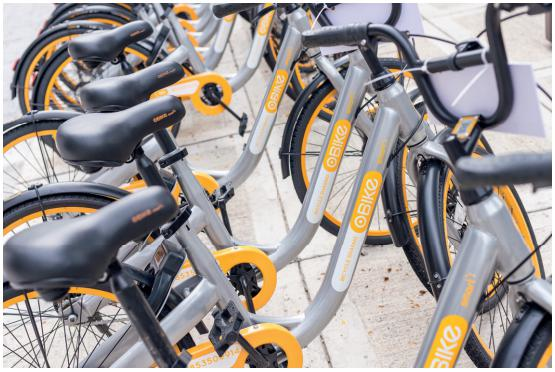Clear and tightly-enforced regulations are necessary start points for any enterprise, even those which are beneficial to society.


Clear and tightly-enforced regulations are necessary start points for any enterprise, even those which are beneficial to society.
WITH American ride-hailing giant Uber and Chinese bike- share operator oBike exiting Singapore within months of each other, consumers are doing one of two things.
Those who are directly affected by the exodus are clamouring for recourse. These people are either facing higher commuting cost (a result of diminished competition) or the prospect of never getting their deposits back.
From the sidelines, others are wondering if having these “disruptors” in our midst is worth the trouble in the first place, or why the Government had allowed them to come into Singapore.
The reactions are understandable, even if they are not entirely justifiable.
First of all, folks who think companies which offer goods and services at unrealistically low prices will somehow be commercially viable are naive, at best.
In the days when Uber was around, it was fighting tooth and nail with arch-rival Grab for both drivers and customers. Armed with tonnes of funds from investors who are suspiciously optimistic, they competed fiercely.
Uber, among other things, embarked on an aggressive fleet expansion, while Grab offered ride promotions like they were going out of fashion.
Consumers, on the receiving end, were spoilt for choice. Many often paid next to nothing for their rides. Did they think the gravy train would never stop?
The same goes for oBike users. Besides enjoying rates which traditional bicycle- rental operators could never match, many exploited the lax regime in which bike-sharing firms operate.

The sharing of vehicles, from Chinese bicycles to French electric cars, is relevant to big cities such as Singapore but has potential pitfalls.
Bikes thrown into canals or from Housing Board flats, bikes vandalised, bikes stolen. All these exerted a cost on the community.
Now that oBike has packed up, users are asking the Government to help them get their money back. How many of these people were the same ones who had been leaving the two-wheelers strewn about like trash?
These people fail to see the irony of the situation. Or they simply refuse to.
Either way, the Government cannot sit idly by. It must make an effort to right whatever wrong there is – or at least be seen to be doing so.
The Competition and Consumer Commission of Singapore is still deliberating on Uber’s sale of its regional assets to Grab. And at time of writing, the Land Transport Authority is grappling with issues like unrefunded deposits and abandoned bicycles.
This entails no small amount of man-hours, which translates to no small amount of taxpayers’ money. Hence the second group of people who are wondering if Singapore should have granted these “disruptors” access to the market in the first place.
So, should we have banned them? No. The transport solutions they brought to the table are relevant in any big city. And like many big cities, Singapore has been struggling to cope with escalating demand for transport (in recent years, coping badly at that).
The trouble with urban transport lies with its peakish nature. Morning and evening rush hours account for the bulk of demand. And infrastructure has to be designed to cater to this demand.
As a result, over the course of a day, the average occupancy of buses rarely exceeds 40%, while that of trains hovers around 60%. So, there is a lot of wasted capacity.

It is thus not difficult to see how things like shared bicycles, personal mobility devices, private-hire cars, ride-share schemes and car-share plans can be of help.
But that does not mean giving all and sundry a laissez- faire access to the market.
The Government had said more than once that it had decided to have a “light touch” approach to regulating these new-age companies because it did not want to stifle innovation.
That clearly had not been a good decision. There is no “innovation” to speak of. None of the disruptors started here. All of them had already been operating in other cities. The regulators here could easily have learnt from the experiences of other jurisdictions.
It is thus puzzling why they took such a laid-back stance.
It would have been far better for everyone, including the disruptors themselves, to have clear and tightly-enforced regulations from day one. They can then factor these regulations into their cost.
A decision not to subsidise electric car-sharing scheme BlueSG is thus a wise one. Paris, which had been subsidising the same scheme for the last seven years, has just decided to pull the plug on it. The French capital had spent hundreds of million of euros in tax revenue on the scheme, which remained largely unpopular and unprofitable despite a claimed subscribers’ base of 150,000.
There will thus be some consolation should the scheme fail in Singapore, too.
GOT A COMMENT?
SEND IT TO CHRISTAN@SPH.COM.SG
THE GOVERNMENT DID NOT WANT TO STIFLE INNOVATION, BUT THERE IS NO “INNOVATION” TO SPEAK OF – NONE OF THE DISRUPTORS STARTED HERE.
ILLUSTRATION & PHOTO (BICYCLES) 123RF.COM























